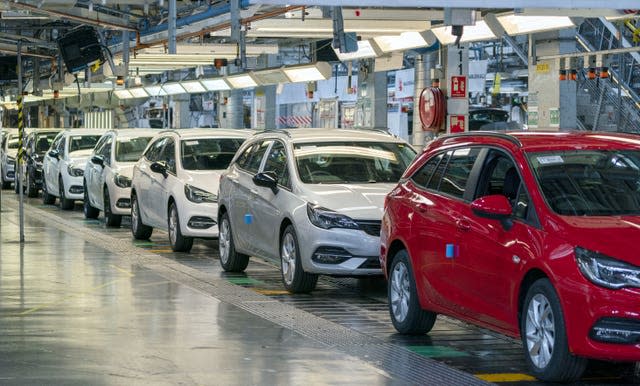September new car registrations slump to lowest level since 1998 in ‘desperately disappointing’ performance
New car registrations in September fell by more than a third compared to the same month last year, as ongoing shortages of components continued to hamper production.
According to industry body the Society of Motor Manufacturers and Traders (SMMT), registrations slumped by 34.4 per cent year-on-year, with just 215,312 new cars joining UK roads. That figure represents the worst September on record since 1998, which was the year before the bi-annual number plate change system was introduced.
The SMMT’s chief executive, Mike Hawes, described the news as “desperately disappointing”, as September is typically the second busiest month for new car registrations after March. The slump can be put down to a shortage of supplies, predominantly semiconductors – small chips that are used in a car’s electronics, including everything from multimedia systems to reversing cameras.
Hawes said: “This is a desperately disappointing September and further evidence of the ongoing impact of the Covid pandemic on the sector. Despite strong demand for new vehicles over the summer, three successive months have been hit by stalled supply due to reduced semiconductor availability, especially from Asia.
“Nevertheless, manufacturers are taking every measure possible to maintain deliveries and customers can expect attractive offers on a range of new vehicles.”
Despite the decline, demand for electric cars continues to increase, with EV registrations up 49.4 per cent to 32,721 sales in September. That represented a 15.2 per cent market share, which is the largest for electric cars yet. Combined with plug-in hybrids, one in five new cars sold in September were zero-emissions-capable vehicles.

The increasing demand for environmentally-friendly models is reflected in the list of September’s best-selling cars. Tesla’s Model 3 was the most popular model overall, with 6,879 examples registered. The Kia Niro – which is available as an EV, hybrid and plug-in hybrid – was the ninth best-seller, with 3,776 examples reaching customers.
Hawes added: “Despite these challenges, the rocketing uptake of plug-in vehicles, especially battery electric cars, demonstrates the increasing demand for these new technologies. However, to meet our collective decarbonisation ambitions, we need to ensure all drivers can make the switch – not just those with private driveways – requiring a massive investment in public recharging infrastructure. Chargepoint roll-out must keep pace with the acceleration in plug-in vehicle registrations.’’


